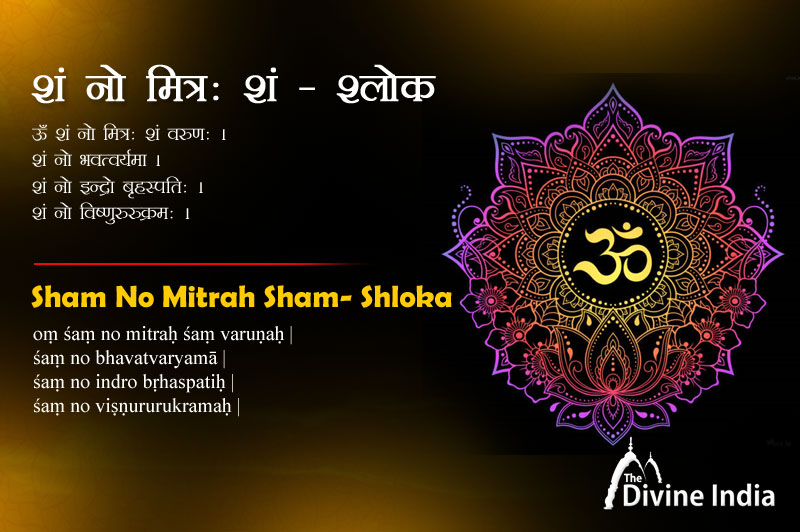


oṃ śaṃ no mitraḥ śaṃ varuṇaḥ |
śaṃ no bhavatvaryamā |
śaṃ no indro bṛhaspatiḥ |
śaṃ no viṣṇururukramaḥ |
namo brahmaṇe |
namaste vāyo |
tvameva pratyakṣaṃ brahmāsi |
tvāmeva pratyakṣaṃ brahma vadiṣyāmi |
ṝtaṃ vadiṣyāmi |
satyaṃ vadiṣyāmi |
tanmāmavatu |
tadvaktāramavatu |
avatu mām |
avatu vaktāram ||
oṃ śāntiḥ śāntiḥ śāntiḥ ||
The verse you've provided is a Vedic chant known as the "Shanti Mantra." It's often recited at the beginning or end of Vedic rituals and prayers, as well as during other spiritual occasions.
Here's the translation:
Om, may Mitra be propitious to us,
May Varuna be propitious to us,
May Aryaman be propitious to us,
May Indra and Brihaspati be propitious to us,
Salutations to Brahman,
Salutations to Vayu (the wind),
You alone, I shall call the direct Brahman,
I shall indeed proclaim you as the visible Brahman,
I shall proclaim you as righteousness,
I shall call you truth,
May that protect me,
May that protect the speaker,
May He protect me,
May He protect the teacher.
Om, peace, peace, peace.
This mantra is a prayer for peace, harmony, and protection. It invokes the blessings of various Vedic deities and emphasizes the importance of truth and righteousness. The repeated "Om" at the beginning and the concluding "peace" signifies the desire for inner and outer peace.